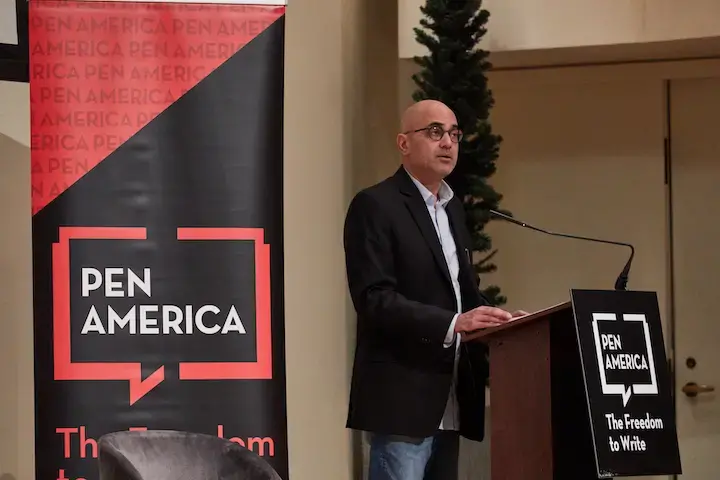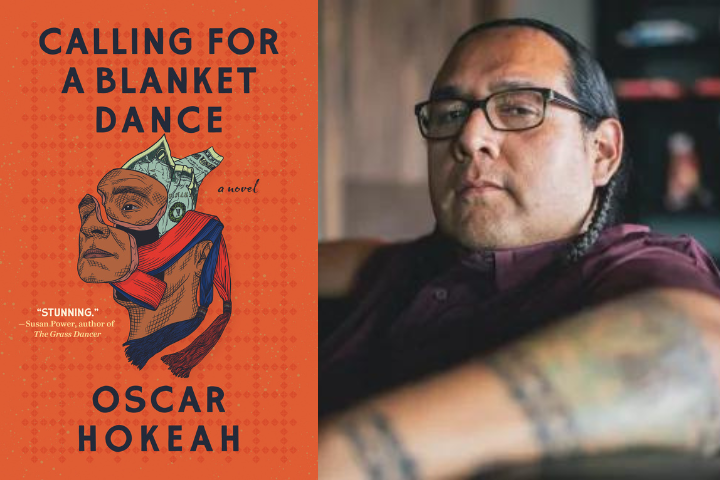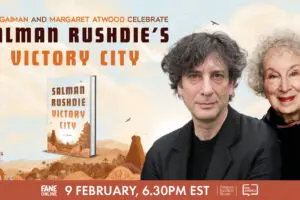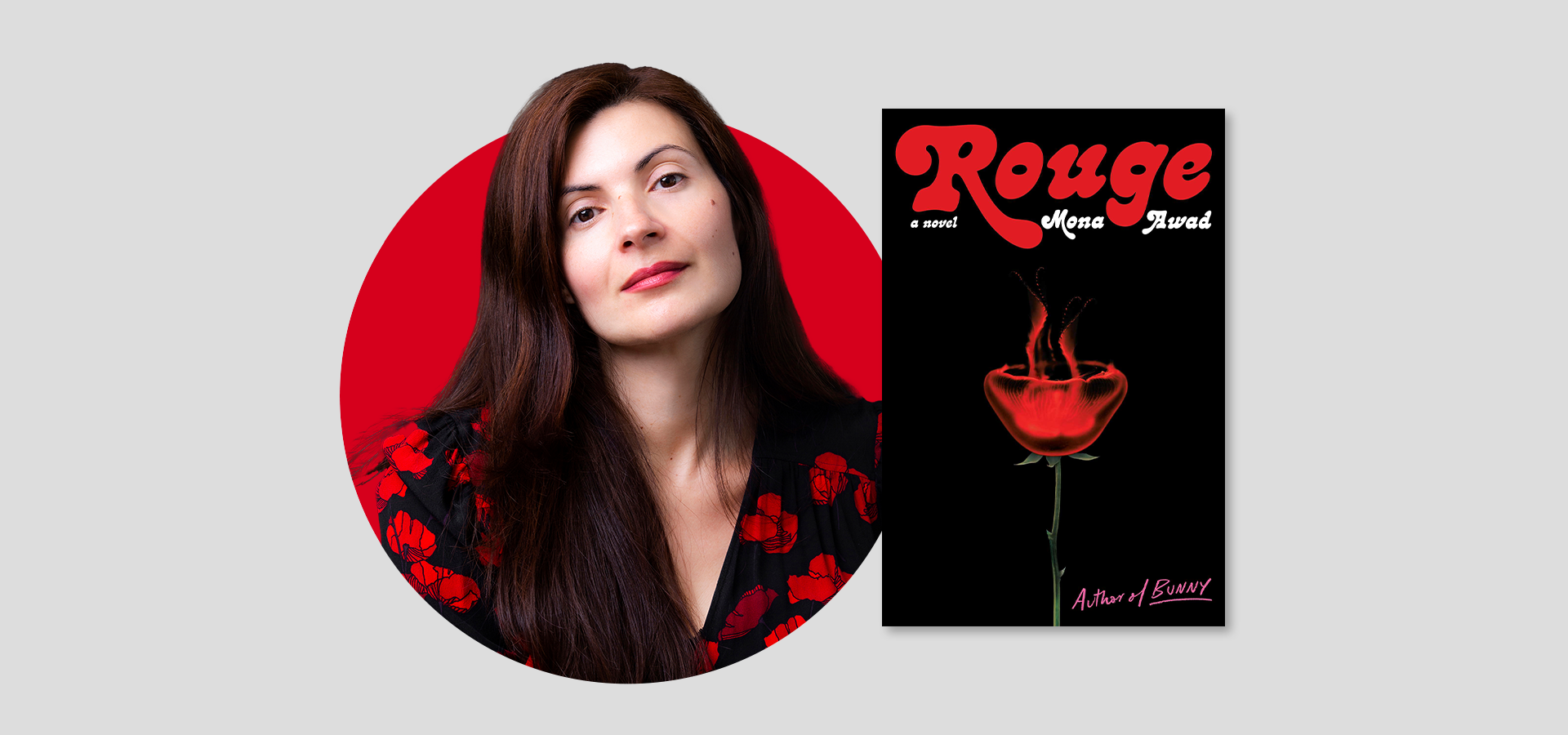
Mona Awad | The PEN Ten Interview
October 5, 2023
Mona Awad’s Rouge (Marysue Rucci Books, 2023) chronicles Belle’s journey through her skincare regimen, the death of her mother, and the cult/spa that melds those two things together: La Maison de Méduse. This satirical and gothic fairytale teaches us the sanctity of our memories and the dangers of beauty’s influence.
In conversation with Lili Stern, Literary Awards, for this week’s PEN Ten, Mona shares her thoughts on the wellness industry, finding humor in the grotesque, and a few book recommendations. (Barnes & Noble, Bookshop)
1. Rouge is very specific and weaves many different themes and subjects together. Where did the idea come from?
I started thinking about this novel when I became addicted to skincare and beauty videos on YouTube during the pandemic. In addition to thinking about beauty, my obsession got me thinking about how much the internet arouses envy. Envy is such a fundamental part of being human, particularly in the age of social media. But few novels explore envy, I think, because it’s a difficult thing to talk about. There’s a lot of shame around envy, it’s ugly, yet we all feel it, we’re all vulnerable to it, and it reveals us in ways we don’t like. And who determines what is enviable, what is beautiful, what is desirable? I’ve also always wanted to work with the fairy tale “Snow White,” a brilliant story about beauty and envy.
2. Belle, your main character, learns so much about her mother, Noelle, after her death. We also get glimpses of her childhood later in the novel. How is grief a driving force in this novel?
Grief is a deep driving undercurrent in the novel, but it’s also something Belle is avoiding, mainly by focusing on her skincare. Really the novel explores how we often focus on the surface in order to avoid pain, or any kind of difficult, deep internal work. But those depths inevitably surface and we have to reckon with them whether we want to or not. This is a narrative dive into that kind of reckoning.
“Really the novel explores how we often focus on the surface in order to avoid pain, or any kind of difficult, deep internal work. But those depths inevitably surface and we have to reckon with them whether we want to or not.”
3. Your protagonist intensely struggles with insecurities connected to the darker features she inherited from her Egyptian father, which is accompanied by the envy Belle feels towards her white mother and the recurring allusions to Snow White. Can you tell me a bit more about the subtext of colorism in your novel?
When I became obsessed with skincare videos, I wondered, why can’t I stop watching these? I was fascinated by how the pull of beauty (or its promise) can be magical: put this cream on your face and it’ll transform you, like a potion in a fairy tale. There is something wondrous, playful and almost child-like about the whole aspirational enterprise of self-care and I love a transformation story. But in all my novels, I’m interested in exploring the shadow side of those transformation narratives that we’re sold: in media, film, fairy tale. The shadow side of the beauty industry is that it feeds and reinforces these very narrow ideas about what beauty is: whiteness, youth, western ideals. Anyone who doesn’t fit within those parameters is made to feel less-than and envious, often from a very young age. As a biracial woman, I’ve always felt both vulnerable to and suspicious of this messaging.
4. You also examine the beauty and wellness industries, as well as the collective desire, notably among women, to eradicate insecurity and to look untouched by life. What do you hope readers take away from this?
I wrote Rouge because I wanted to explore beauty’s shadow side and its cost. How much of myself must I erase to attain the ultimate surface? At Rouge, race, difference and heritage are erased through memory extraction and ‘brightening.’ I also wrote Rouge because, like Belle, I’m a total sucker for beauty and the peddlers of its promise. I’m spellbound by beauty’s power and its privilege, its suggestion of immortality, even as I know how sinister and exploitative it can be.
“There is something wondrous, playful and almost child-like about the whole aspirational enterprise of self-care and I love a transformation story. But in all my novels, I’m interested in exploring the shadow side of those transformation narratives that we’re sold: in media, film, fairy tale.“
5. What role do you find humor has to play in your work? Do you find it helps you take pleasure in writing or is it solely for the benefit of the reader? I’ve given an example of a conversation that made me chuckle, as someone who has used retinol.
‘What sort of journey?’ I ask.
[…]
‘The only journey that matters in the end, Daughter of Noelle.’
‘Retinol?’ I whisper.
‘The soul. A journey of the soul, of course.’
And the white jellyfish in my palm quivers. (p.109)
I think satire can be a way to have fun with the things that have immense power over us. I’ve always been inspired by moments of profound powerlessness in the everyday: outsiderness in Bunny, toxic body image culture in 13 Ways of Looking at a Fat Girl, dealing with dismissive doctors in All’s Well. Rouge definitely has some darkly satirical moments with skincare, consumerism, the whole exploitative cult of beauty. Approaching these with humor takes some of that power back. I think it’s hilarious that Rouge is clearly a dangerous cult from the beginning but Belle doesn’t see it because she doesn’t want to. She’s that powerless, that vulnerable in the face of beauty and its promise. She’s been made to be, after all, all her life. As frightening as that is, it’s also deeply funny and human to be drawn to the things that destroy us.
6. Rouge is described as something of a culty California novel but once the reader is introduced to the skincare community the protagonist’s mother was wrapped up in, La Maison de Meduse is concretely more magical than other west coast “sects” are (I’m thinking Manson Family, NXIVM, Children of God…) and have been portrayed in all of pop culture’s iterations. Can you tell me about the magical world building that went into this?
Spas and the beauty industry are very culty, and there’s a promise of magic and transformation implicit in the pursuit of self-care so in some ways it was very easy. But I didn’t really think about it as magical because to me magic and the surreal is really more about leaning into a character’s perspective than describing any kind of external reality. My way in to any kind of world building is to occupy my character’s consciousness and really try to report their experience. Through Belle’s surface-obsessed eyes, of course, the world of La Maison de Meduse is all magic and dark enchantment. To someone else, it might be a completely different experience.
7. Your writing often deals with feelings of longing or obsession, and tends to veer towards the gothic, horror, or darkly comic. Why do you think it is that you’re so drawn to this tone?
It’s probably just a lot to do with how I see and experience the world. But I also think longing and obsession can lead you down some naturally very shadowy (and absurd) paths. When we’re in the terrain of obsession, we are far from the realm of reason and certainly no amount of logic can save you from obsession—which is both terrifying and funny.
8. You are a very experienced writer–how would you say your process has evolved over your career?
I’m more inclined to trust my instincts than I was before, but the fear and uncertainty is still always there. And I guess I wouldn’t have it any other way.
“Rouge definitely has some darkly satirical moments with skincare, consumerism, the whole exploitative cult of beauty. Approaching these with humor takes some of that power back.“
9. Are there any new emerging writers you’re particularly taken with right now?
I love the work of Daniel Lavery. His collection, The Merry Spinster, is one of my favorite contemporary works of fairy tale. The way he re-envisions children’s stories is so brilliant, they feel dangerous and alive in a new way. I also loved Megan Giddings’s debut Lakewood, which I thought was very creepy and fantastic. She’s not emerging perhaps, but I also really love the work of Sayaka Murata.
10. What is your favorite bookstore to go to?
Too many to name, honestly, but Newtonville and Harvard Book Store are my local ones in Boston so I have a special place in my heart for them both. I also love going to McNally Jackson because I love how they organize their fiction shelves by region—I discovered so many new writers that way. I love Book Soup in LA because that’s where I first bought Demian by Herman Hesse when I was 17 (which blew my mind) and I just love how the store is laid out with those tall dark winding shelves. The King’s English in Salt Lake City is sacred to me because it’s where I used to work and I love the booksellers there. I also love their mystery room—it has so many great nooks for browsing. And of course I love Warwick’s in La Jolla. La Jolla is where I wrote most of Rouge and it’s where I like to go to write, so Warwick’s has become very special to me over the years. It’s a beautiful bookstore and I also love their stationery.
Mona Awad is the author of the novels All’s Well, Bunny, and 13 Ways of Looking at a Fat Girl. Bunny was a finalist for a Goodreads Choice Award and the New England Book Award. It was named a Best Book of 2019 by TIME, Vogue, and the New York Public Library. It is currently being developed for film with Bad Robot Productions. All’s Well was a finalist for a Goodreads Choice Award. 13 Ways of Looking at a Fat Girl was shortlisted for the Giller Prize. Awad’s forthcoming novel Rouge, is being adapted for film by Fremantle and Sinestra. This spring, Margaret Atwood named Awad her ‘literary heir’ in The New York Times’s T Magazine. She teaches fiction in the creative writing program at Syracuse University and is based in Boston.
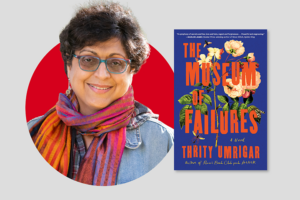
Thrity Umrigar | The PEN Ten Interview
Because what I’m most interested in is examining the systems and forces that create divides between people, those power dynamics that separate us.
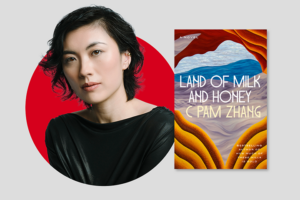
C Pam Zhang | The PEN Ten Interview
Like language, food is essential and theoretically accessible to almost anyone. The real question is which culinary voices are permitted, celebrated, amplified, valued.
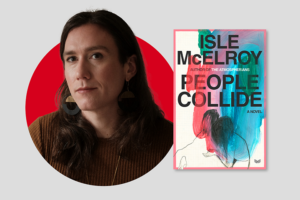
Isle McElroy | The PEN Ten Interview
It can feel amazing to be taken care of, to be known, but it can also feel limiting if one is shown things about oneself that are difficult to confront.
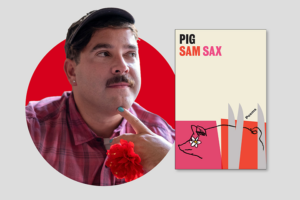
Sam Sax | The PEN Ten Interview
I think in that same way that every poem teaches you how to read it, every poem you make teaches you how to make it as you’re writing.

